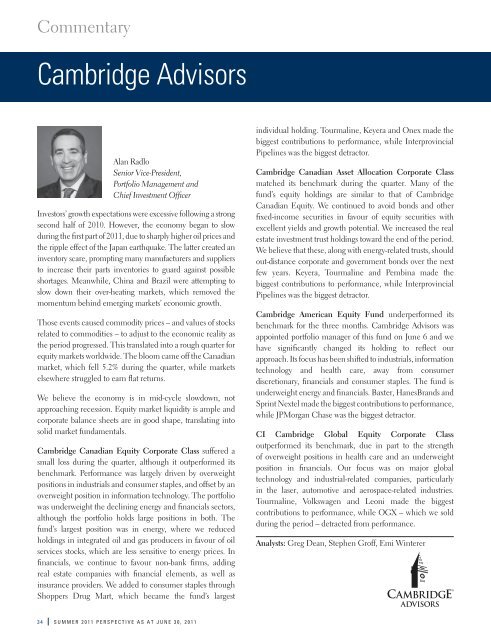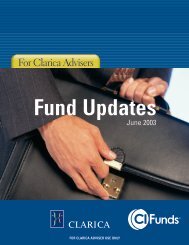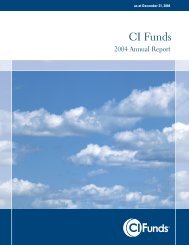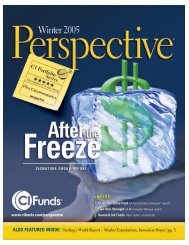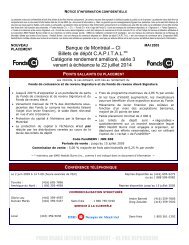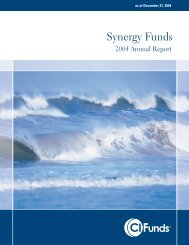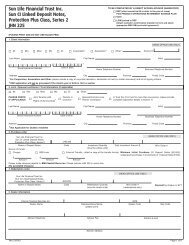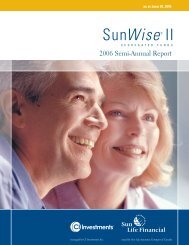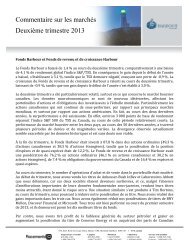July - Summer Edition - CI Investments
July - Summer Edition - CI Investments
July - Summer Edition - CI Investments
You also want an ePaper? Increase the reach of your titles
YUMPU automatically turns print PDFs into web optimized ePapers that Google loves.
Commentary<br />
Cambridge Advisors<br />
Alan Radlo<br />
Senior Vice-President,<br />
Portfolio Management and<br />
Chief Investment Officer<br />
Investors’ growth expectations were excessive following a strong<br />
second half of 2010. However, the economy began to slow<br />
during the first part of 2011, due to sharply higher oil prices and<br />
the ripple effect of the Japan earthquake. The latter created an<br />
inventory scare, prompting many manufacturers and suppliers<br />
to increase their parts inventories to guard against possible<br />
shortages. Meanwhile, China and Brazil were attempting to<br />
slow down their over-heating markets, which removed the<br />
momentum behind emerging markets’ economic growth.<br />
Those events caused commodity prices – and values of stocks<br />
related to commodities – to adjust to the economic reality as<br />
the period progressed. This translated into a rough quarter for<br />
equity markets worldwide. The bloom came off the Canadian<br />
market, which fell 5.2% during the quarter, while markets<br />
elsewhere struggled to earn flat returns.<br />
We believe the economy is in mid-cycle slowdown, not<br />
approaching recession. Equity market liquidity is ample and<br />
corporate balance sheets are in good shape, translating into<br />
solid market fundamentals.<br />
Cambridge Canadian Equity Corporate Class suffered a<br />
small loss during the quarter, although it outperformed its<br />
benchmark. Performance was largely driven by overweight<br />
positions in industrials and consumer staples, and offset by an<br />
overweight position in information technology. The portfolio<br />
was underweight the declining energy and financials sectors,<br />
although the portfolio holds large positions in both. The<br />
fund’s largest position was in energy, where we reduced<br />
holdings in integrated oil and gas producers in favour of oil<br />
services stocks, which are less sensitive to energy prices. In<br />
financials, we continue to favour non-bank firms, adding<br />
real estate companies with financial elements, as well as<br />
insurance providers. We added to consumer staples through<br />
Shoppers Drug Mart, which became the fund’s largest<br />
individual holding. Tourmaline, Keyera and Onex made the<br />
biggest contributions to performance, while Interprovincial<br />
Pipelines was the biggest detractor.<br />
Cambridge Canadian Asset Allocation Corporate Class<br />
matched its benchmark during the quarter. Many of the<br />
fund’s equity holdings are similar to that of Cambridge<br />
Canadian Equity. We continued to avoid bonds and other<br />
fixed-income securities in favour of equity securities with<br />
excellent yields and growth potential. We increased the real<br />
estate investment trust holdings toward the end of the period.<br />
We believe that these, along with energy-related trusts, should<br />
out-distance corporate and government bonds over the next<br />
few years. Keyera, Tourmaline and Pembina made the<br />
biggest contributions to performance, while Interprovincial<br />
Pipelines was the biggest detractor.<br />
Cambridge American Equity Fund underperformed its<br />
benchmark for the three months. Cambridge Advisors was<br />
appointed portfolio manager of this fund on June 6 and we<br />
have significantly changed its holding to reflect our<br />
approach. Its focus has been shifted to industrials, information<br />
technology and health care, away from consumer<br />
discretionary, financials and consumer staples. The fund is<br />
underweight energy and financials. Baxter, HanesBrands and<br />
Sprint Nextel made the biggest contributions to performance,<br />
while JPMorgan Chase was the biggest detractor.<br />
<strong>CI</strong> Cambridge Global Equity Corporate Class<br />
outperformed its benchmark, due in part to the strength<br />
of overweight positions in health care and an underweight<br />
position in financials. Our focus was on major global<br />
technology and industrial-related companies, particularly<br />
in the laser, automotive and aerospace-related industries.<br />
Tourmaline, Volkswagen and Leoni made the biggest<br />
contributions to performance, while OGX – which we sold<br />
during the period – detracted from performance.<br />
Analysts: Greg Dean, Stephen Groff, Emi Winterer<br />
34 SUMMER 2011 PERSPECTIVE AS AT JUNE 30, 2011


